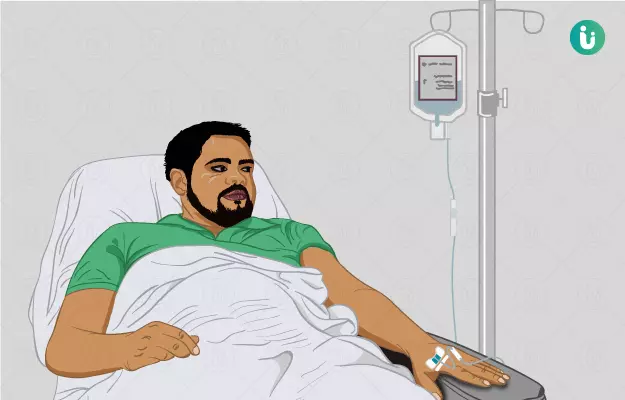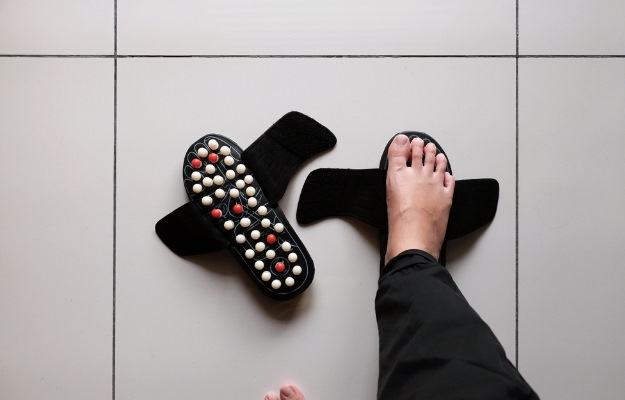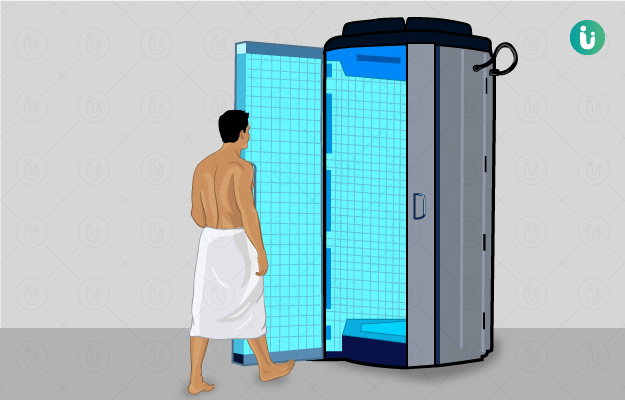Technically, taking any sort of drug treatment is chemotherapy. However, nowadays, this word is used for the treatment of cancer with anti-cancer medications or cytotoxic (toxic to cells) medications.
Apart from cytotoxic medications, there are other types of anti-cancer medicines as well. These may include drugs that block the effects of specific hormones and drugs in the form of monoclonal antibodies that assist the immune system of the body.
Read on to know about chemotherapy drugs, chemotherapy goals, types of chemotherapy, how chemotherapy is done, side effects of chemotherapy and how to cope with the side effects of chemotherapy.
- Chemotherapy drugs
- Chemotherapy goals
- Chemotherapy types
- How is chemotherapy done?
- Chemo cycles and the usual duration of chemotherapy
- Chemotherapy side effects
- Tips to deal with chemotherapy side effects
- Alternatives to chemo
Chemotherapy drugs
Chemotherapy drugs may be prescribed on their own or in conjunction with other treatment methods. The main types of chemotherapy drugs are:
Cytotoxic medications: This group of drugs acts as a poison to malignant (cancer) cells. These medicines destroy cancer cells and restrict their multiplication. Here’s how:
- Some of these drugs work by acting on the genetic material of the cells
- Some stop cells from utilising the nutrients they need to replicate
Most doctors used two or more of these medicines in a course of chemotherapy. The reason behind this is that both work differently, giving a higher success rate as compared to single-agent chemotherapy.
The type of cytotoxic medications used depends on the stage and kind of cancer. Most doctors follow the best possible chemotherapy protocols based on evidence from the most recent studies.
Cytotoxic drugs are most effective in cancers where the malignant cells divide and multiply rapidly.
The normal cells of the body such as cardiac (heart) cells, cells of the nervous system and bone cells are not affected significantly by these medicines as they do not divide very frequently. Normal cells in the body that multiply rapidly, including hair cells, cells of the bone marrow and cells lining the gut, are affected and this results in numerous side effects of cytotoxic drugs. However, the normal cells that get damaged during treatment usually recover quickly after stopping the medicines.
Hormone therapy: Medicines like tamoxifen may be prescribed to breast cancer patients after breast cancer surgery, to keep the cancer in check by blocking the estrogen receptors on the cancer cells.
Chemotherapy goals
The ultimate aim of chemotherapy is to treat cancer. Sometimes, only chemotherapy may be sufficient to treat cancer. Whereas, in some cases, it is used in combination with other therapies such as surgical removal of the tumour(s).
Other goals of chemotherapy:
- In case the patient has advanced cancer and remission (a condition in which cancer cells are sufficiently controlled/killed/removed) is not possible, chemotherapy may be given to restrict the growth and spread of cancer.
- Chemotherapy may be used as palliative treatment. If the patient has advanced cancer with poor prognosis (low chances of recovery), these drugs help in the reduction of the size of tumour which reduces the symptoms of cancer. Thus, by easing symptoms like pain, the doctor can improve the quality of life in terminal patients.
Cancer remission versus cure for cancer
If there is no evidence of malignancy (that is, no signs of cancer left) after treatment, the patient is said to be in remission. But the cancer can come back (recurrence) after some time—the time lag could vary from months to years. This is the reason why oncologists use the word “remission” instead of “cured”.
When cancer is in remission, it means the patient is out of immediate danger. For patients whose cancer is in remission, it is important that they adhere to the follow-up visits and tests that their doctor recommends very closely, as this could help to detect any recurrence early and possibly improve the outcome for the patient.
Chemotherapy types
Depending on why and how it is used, chemotherapy can be of the following types:
- Adjuvant chemotherapy: Chemotherapy that is given after primary treatment like surgery is called adjuvant chemotherapy.
- Neoadjuvant chemotherapy: Chemotherapy that is given before primary treatment like surgery to improve the effectiveness of the best treatment is called neoadjuvant chemotherapy.
- Palliative chemotherapy: Chemotherapy that is given to improve symptoms even when there is little hope of remission.
How is chemotherapy done?
Before a patient is started on chemotherapy, the doctor might perform some routine investigations including a complete blood count, liver function test and kidney function tests. Some other investigations may also be recommended such as an electrocardiogram (ECG), echocardiogram and pulmonary (lung) function test.
Cytotoxic drugs need to reach your bloodstream so that they can be transported to all the areas of the body and act on malignant cells. Chemotherapy may be given by the following methods :
- Intravenously: This allows the drug to be given straight to the bloodstream by injecting it into a vein. This can be done in many ways.
- The dose may be injected directly into the vein using a syringe and needle.
- Some drugs may be mixed with a bag of fluids which is connected to a tube that would be inserted in the patient’s hand. This helps in diluting the drugs so that they are less likely to cause venous irritation. Small pumps may be used along with this method to ensure that the drug enters the body at a fixed specific rate as per protocols.
- In some patients, a thin tube is inserted into a deep vein. This can be a central line (in the chest) or peripheral line (in the arm). This allows the doctor to leave the tube in the body of the patient for a long duration of time, till the chemotherapy is completed, so the patient will not require repeated injections. This method of delivering chemotherapy has become very popular and is very commonly used. Blood samples can also be taken from this line. Patients need to ensure that the line remains clean to avoid any infection.
- Oral drugs: Some cytotoxic drugs can be given orally in the form of tablets or liquids and they get absorbed from the gastrointestinal tract and enter the bloodstream.
- Through lumbar puncture: For patients with brain or spinal cord cancers, drugs are given via a lumbar puncture in which a needle is positioned into the space adjacent to the spinal cord. The reason for using this method is that drugs do not reach the brain or spinal cord from the blood due to the presence of the blood-brain barrier (it typically prevents pathogens and potentially harmful chemicals from crossing over from the body to the brain).
- Other routes: Drugs may be given via other routes for example:
- Intramuscular injections
- Creams to be used on the skin
- Injections into the chest cavity
- Direct injection of the drugs at the tumour site
Chemo cycles and the usual duration of chemotherapy
In most patients, chemotherapy is given in cycles; that is, periods of treatment followed by a resting phase. If you are receiving your chemotherapy in cycles, you may receive the drugs in one day or over a few days followed by a gap in treatment for three-four weeks. This method helps in the recovery of the body from any side effects that may occur. It also allows the damage that takes place in normal cells to resolve before the next cycle. The frequency of the cycles depends on the type of cancer and the medication that is being utilised.
Most patients receive the full course of chemotherapy (six cycles) over a span of six months. This may be longer or shorter depending on the protocol that is being followed. Your doctor might recommend some tests to check the effectiveness of the medications. These may include an ultrasound, computed tomography (CT) scan, magnetic resonance imaging (MRI) scan or PET scan. The results of these tests are used to decide the duration of the treatment and changes in drugs, if required. Regular blood investigations such as complete blood counts, liver function tests and kidney function tests will also be performed very frequently to check whether the drugs are affecting them negatively or not.
Most patients receive chemotherapy as an outpatient procedure. You are required to stay at the hospital for some hours and then you can go back home. Some medications require the patients to be admitted for a day or two because they need to be infused (given) over a longer period of time and may need monitoring.
Some people may also get chemotherapy at their homes. It is given through a line placed in a vein and the drug is delivered via an infusion pump over a fixed amount of time.
Chemotherapy side effects
Chemotherapeutic agents are very harsh drugs and may result in numerous undesirable side effects. This happens due to damage to the normal (fast-growing) cells in the body along with the malignant cells. The type of side effects depend on the kind of medication that you have been given and the drugs may react differently in every individual. Some people experience really bad side effects whereas some may experience none at all.
The common side effects that may be observed include the following:
- Tiredness and fatigue: It is a very common side effect of chemotherapy. You may experience disabling fatigue during treatment.
- Nausea and vomiting: Nausea and vomiting is another very common side effect of chemotherapy.
- May affect the blood cells and immune system of the body: Cytotoxic drugs can damage the bone marrow that is responsible for producing the red blood cells (RBCs), white blood cells (WBCs) and platelets for the body. Therefore due to a lack of the above-mentioned cells, the patients may have to face the following:
- Anaemia: Anaemia is defined as a condition in which patients have low haemoglobin levels. Anaemic patients feel tired all the time and appear to be extremely pale. In case your haemoglobin levels are dangerously low, you may require blood transfusions.
- Infections: If a patient has low white blood cell count, they are highly susceptible to serious infections. The white blood cells are responsible for identifying and fighting off disease-causing bacteria, viruses and other pathogens. If you have received chemotherapy and you develop a fever or sore throat, immediately visit your doctor. You may require intravenous antibiotics to fight the infection. (Read more: What does it mean to be immunocompromised?)
- Bleeding issues: Due to low platelet levels, patients may bleed very easily even after minor injuries. Platelets are responsible to clot the blood in case of any damage to tissues. If your platelet counts are dangerously low, you may need a platelet transfusion. (Read more: Blood clotting disorders)
- Oral complications: Cells lining the mouth can be damaged by cytotoxic drugs. This can result in soreness or dryness of the mouth.
- Hair loss: Chemotherapeutic agents might damage the cells responsible for making hair. Patients might lose their hair partially or completely. Hair fall is commonly observed two-three weeks after the first cycle of chemotherapy. This includes all the hair on your body like scalp hair, body hair and eyelashes. The hair is expected to grow back one month to three months after treatment is finished.
- Stomach upset: Chemo drugs commonly cause constipation or diarrhoea in patients.
- Pregnancy and chemotherapy: Females receiving chemotherapy should not aim to get pregnant as cytotoxic drugs can damage the egg or the fetus itself. You should use reliable contraception while being treated for cancer.
Before every cycle of chemotherapy, it is important to get a complete blood count done. If red blood cells, white blood cells or platelets are low, then the treatment might be delayed and certain medications may be given to boost the cell counts.
Tips to deal with chemotherapy side effects
Fatigue, nausea, chemo brain (a type of brain fog), hair loss, weight loss, diarrhoea, loss of appetite, dry skin, itchy skin, bleeding problems are common problems associated with chemo. However, you must trust that doctors recommend therapies only after considering their consequences—that is, when the benefits outweigh the side effects. Additionally, there are some remedies you can try for these side effects:
For the fatigue: While getting chemo, you may need to scale back or reduce the activities that cause exertion. Take adequate rest. On some days, you may have to take some help from other people around you to perform the activities of daily living.
For nausea and vomiting: Patients should try to consume plenty of fluids to avoid any sort of dehydration that may result from excessive vomiting or diarrhoea or both. You may also want to suck on ice in case you do not feel like taking oral fluids. Some antiemetics (drugs that help in reducing nausea and avoiding vomiting) may help and are usually given as pre-medications before receiving the cycle of chemotherapy.
For the hair loss: Patients may lose hair in clumps or more gradually. To reduce hair fall during chemo, specialists recommend avoiding hair treatments, irons, curlers and chemicals. Additionally, some patients may be able to use a scalp cooling cap or hair regrowth medicine like minoxidil. Talk to your doctor about these, as they both have their pros and cons. Experts say most patients are able to regrow their hair, and any change in colour (greying) and texture of hair also typically resolves after a few months of ceasing chemotherapy.
For the weight change: Chemotherapy can cause loss of appetite and diarrhoea. However, weight loss of 1.5 kilograms or more a week should be reported to the doctor. It is important to avoid severe dehydration, so make sure to drink plenty of fluids or keep ice chips in your mouth. You could also eat more calorie-rich healthy foods like nuts, dry-fruit and boiled eggs.
Are you also troubled by obesity and are not able to lose weight even after a lot of efforts, then start using myUpchar Ayurveda Medarodh Weight Control Tablet today and control your weight.
For skin and nail changes: Chemotherapy targets fast-growing cancer cells. Unfortunately, it can also target normal fast-growing cells in the body like the hair and skin. Though chemo does not affect the skin as much as radiation therapy can, it can still cause dry skin, itching, skin rashes and nail changes. Use a gentle, non-perfumed moisturiser for relief and stay hydrated. Talk to your doctor before using any products, to check their safety and usefulness. (Read more: Home remedies for dry skin)
For chemo brain: Patients with chemo brain (characterised by a loss of mental sharpness) may have difficulty concentrating, remembering things (including names and places), completing tasks and learning new skills. They may also suffer bouts of forgetfulness or complete memory lapses. Experts say physical exercise (even lighter activities), meditation, adding foods that are rich in vitamins and antioxidants to your diet and getting organised with planners and reminders can help. You should also talk to your doctor about prescribing medications if the symptoms become difficult to handle.
For suppressed immunity and blood-related problems: Doctors may prescribe growth factor or colony-stimulating factors to patients who are at high risk of getting an infection while they complete their chemo cycles. Additionally, patients can take precautions such as washing their hands properly and keeping their distance from people who seem to be sick, to avoid infections.
For mouth and teeth problems: Try and practice routine good mouth care to avoid these issues. This includes the following:
- Remember to brush your teeth twice a day using a soft toothbrush and toothpaste that contains fluoride.
- Do not forget to rinse your mouth after every meal and before sleeping. You can use normal water. You can even prepare a sodium chloride solution by mixing half a teaspoon of salt in 250 ml of water. Warm or cold water can be used.
- Make sure that you remove all debris present in your mouth or on your tongue by gently brushing it off using your toothbrush. Foam sticks can also be used if a toothbrush causes pain or bleeding.
- Some doctors may also recommend chewing pineapples as a way to clean your mouth. The reason behind this is that pineapple contains an enzyme (chemical) called ananase that destroys the debris in the mouth.
- Always remove your dentures before sleeping. Dentures should be cleaned using a soft toothbrush and soaked overnight in denture solution. Make sure that you rinse them before each use.
In case you develop dry mouth, take frequent sips of water and use a sugar free chewing gum. Some patients might be prescribed artificial saliva or drugs that can stimulate the salivary glands.
For hair loss: Remember that for most cancer survivors, hair regrows one to three months after the chemotherapy is stopped. You can manage this by:
- Keeping your hair short before chemotherapy so that the differences before and after treatment are not very visible.
- Some patients opt to wear a wig or hat.
- Do not forget to apply sunscreen on your head when out in the sun.
- Glasses may be used to protect eyes from the wind if your eyelashes fall out.
For constipation: Patients who experience constipation after chemotherapy are advised to eat plenty of fibre-rich food and drink adequate fluids. Some patients may be prescribed laxatives to help with constipation.
For diarrhoea: In case you develop diarrhoea after chemotherapy, increase your fluid intake. Some patients can be given antidiarrheal medications or intravenous fluids in case of severe dehydration.
Alternatives to chemo
Though chemotherapy and radiation therapy are the two most common cancer treatments around the world, other treatment options like immunotherapy for cancer (for example, CAR T-cell therapy) have also proven effective. The doctor will recommend the right therapy for each patient, based on the type and stage of cancer they have. Some of the other treatments for cancer could be:
- Monoclonal antibodies: These are cancer-fighting proteins that are carefully tested, isolated and grown in labs before being injected into the patients, to improve their body's immune response to cancer. They work in different ways such as helping the body find the cancer cells, attacking the cancer cells and to deliver other drugs and radiation to the cancer cells, among other modalities.
- Gene therapy: Gene therapy can be of different types:
- Gene transfer involves killing cancer cells by introducing new genes into the tumours or cancer cells themselves or into the surrounding tissues.
- Immunotherapies for cancer like CAR T-cell have shown promising results. This therapy uses the body’s own immune system to fight the cancer.
- Oncolytic virotherapy in which therapists use viruses to attack the cancer cells.
References
- Rang H.P., Dale M.M., Ritter J.M. and Moore P.K. Pharmacology, Fifth edition, Bath, Churchill Livingstone. (2003) .
- Rugo H.S. Management of chemotherapy-induced nausea and vomiting in clinical practice. Clinical Advances in Hematology & Oncology, 12 March 2014; Suppl 9(3): 9-11. PMID: 25855943
- Hesketh P.J., Batchelor D., Golant M., et al. Chemotherapy-induced alopecia: psychosocial impact and therapeutic approaches. Support Care Cancer, August 2004; 12(8):543-9. Epub 19 June 2004. PMID: 15221580.
- Cross D. and Burmester J.K. Gene therapy for cancer treatment: past, present and future. Clinical Medicine & Research, September 2006; 4(3): 218-27. doi: 10.3121/cmr.4.3.218. PMID: 16988102; PMCID: PMC1570487.













